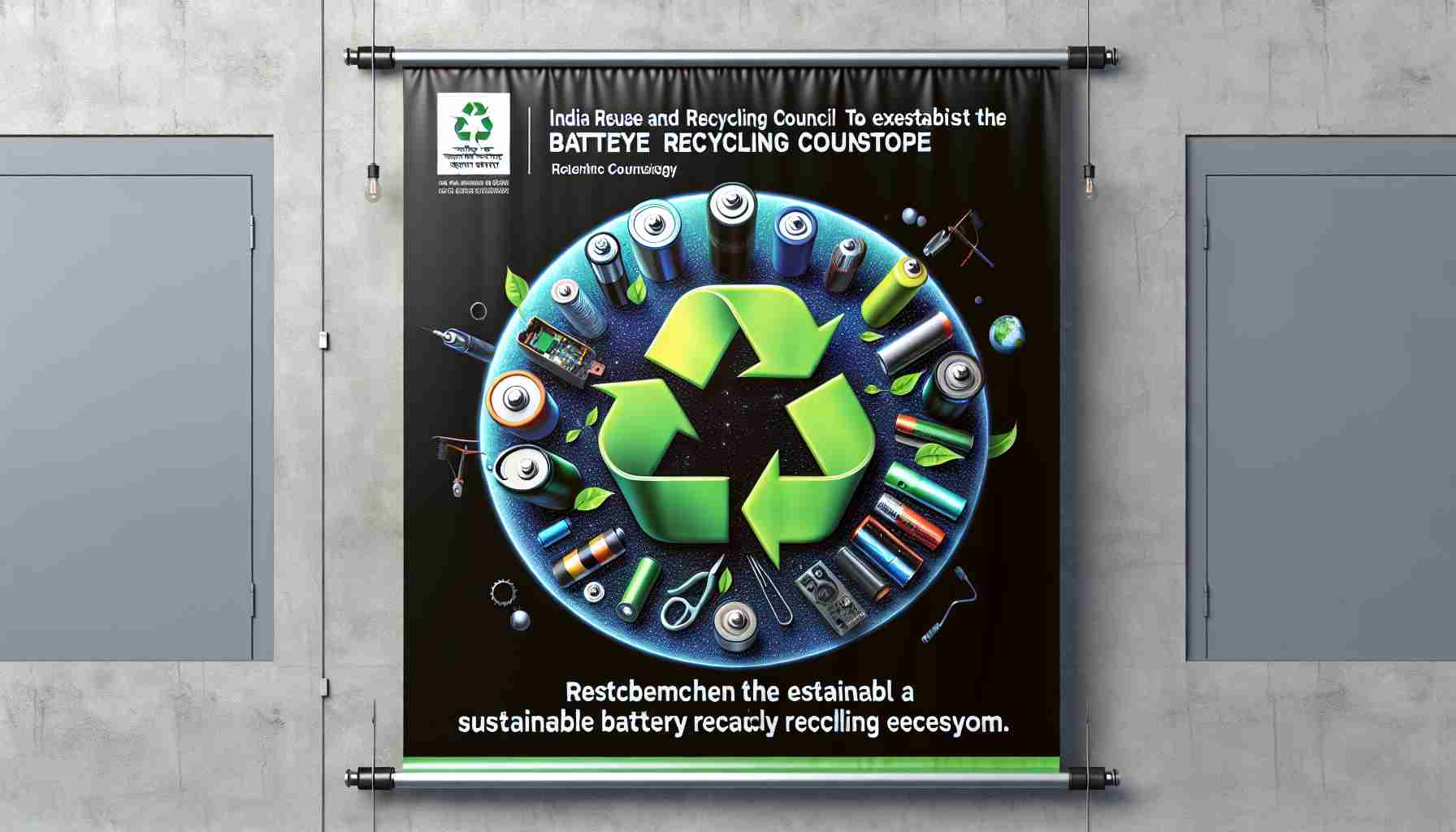The India Energy Storage Alliance (IESA) has recently launched the India Reuse and Recycling Council (IRRC), with the objective of developing a robust battery recycling and sustainable second-life applications ecosystem in India. The council, which will work closely with various industry stakeholders and policymakers, aims to promote a circular economy by supporting battery reuse, recycling, and critical mineral recovery efforts.
Mr. Debi Prasad Dash, Executive Director of IESA and Secretary of IRRC, highlighted that the council will collaborate with companies operating across the battery recycling value chain, as well as academia and R&D institutes, to build a strong recycling and reuse ecosystem. Additionally, IRRC will undertake activities such as market assessments, techno-commercial analysis, policy and regulatory analysis, and competition analysis to further its objectives.
IRRC’s focus areas include implementing efficient collection mechanisms, facilitating second-life applications and recycling of used batteries, promoting domestic technology development for battery recycling and material processing, and working on circularity principles for battery design. The council also aims to establish partnerships with global organizations to share best practices and contribute to improving battery recycling practices and standards. Furthermore, IRRC will support research and innovation in battery recycling technologies and promote skill development and capacity-building programs.
Under IRRC, IESA will collaborate with its member companies, including Exigo Recycling, LICO Materials, Rubamin, BatX Energies, Nile Li-Cycle, Lohum, Excel Industries, ACE Green Recycling, Nunam, and others. The council will actively engage with government bodies such as NITI Aayog, the Ministry of Environment, Forest and Climate Change, the Ministry of Chemicals & Fertilizer, and the Central Pollution Control Board (CPCB).
By establishing a sustainable battery recycling ecosystem, IRRC aims to contribute to India’s growth in the Li-ion battery recycling industry and become a global hub for the supply of battery-grade materials. The council invites all key stakeholders to join its efforts and drive the industry towards a more sustainable future.
FAQ:
1. What is the India Reuse and Recycling Council (IRRC)?
IRRC is a council launched by the India Energy Storage Alliance (IESA) with the objective of developing a robust battery recycling and sustainable second-life applications ecosystem in India.
2. What is the goal of IRRC?
The goal of IRRC is to promote a circular economy by supporting battery reuse, recycling, and critical mineral recovery efforts in India.
3. Who will IRRC collaborate with?
IRRC will collaborate with companies operating across the battery recycling value chain, as well as academia and R&D institutes, to build a strong recycling and reuse ecosystem.
4. What activities will IRRC undertake?
IRRC will undertake activities such as market assessments, techno-commercial analysis, policy and regulatory analysis, and competition analysis to further its objectives.
5. What are the focus areas of IRRC?
IRRC’s focus areas include implementing efficient collection mechanisms, facilitating second-life applications and recycling of used batteries, promoting domestic technology development for battery recycling and material processing, and working on circularity principles for battery design.
6. Who will IRRC partner with?
IRRC aims to establish partnerships with global organizations to share best practices and contribute to improving battery recycling practices and standards.
7. Who are some of the member companies of IESA collaborating with IRRC?
Some of the member companies of IESA collaborating with IRRC include Exigo Recycling, LICO Materials, Rubamin, BatX Energies, Nile Li-Cycle, Lohum, Excel Industries, ACE Green Recycling, Nunam, and others.
8. Which government bodies will IRRC engage with?
IRRC will actively engage with government bodies such as NITI Aayog, the Ministry of Environment, Forest and Climate Change, the Ministry of Chemicals & Fertilizer, and the Central Pollution Control Board (CPCB).
9. What is the aim of establishing a sustainable battery recycling ecosystem?
The aim of establishing a sustainable battery recycling ecosystem is to contribute to India’s growth in the Li-ion battery recycling industry and become a global hub for the supply of battery-grade materials.
10. Who is invited to join IRRC’s efforts?
All key stakeholders are invited to join IRRC’s efforts and drive the industry towards a more sustainable future.
Definitions:
1. Circular Economy: An economic system aimed at minimizing waste and making the most of resources. It involves maintaining the value of products, materials, and resources for as long as possible through reuse, recycling, and regeneration.
2. Li-ion Battery: A type of rechargeable battery that uses lithium ions as the primary means of energy storage. It is commonly used in portable electronics and electric vehicles.
Related Links:
– India Energy Storage Alliance
The source of the article is from the blog bitperfect.pe
